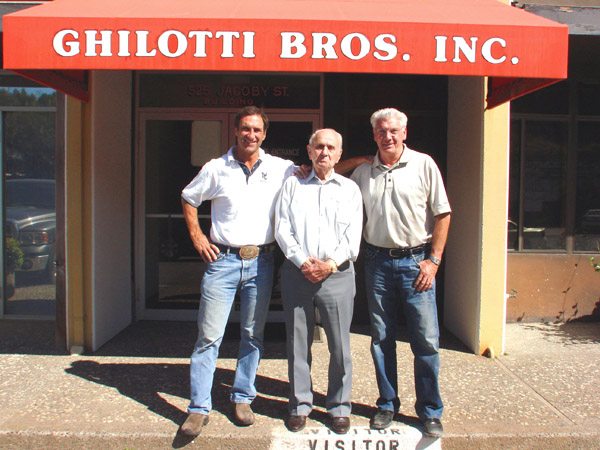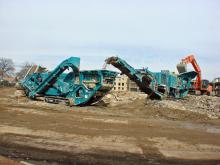
Service and quality is the key when it comes to crushing and screening equipment success for one US-based quarry operator
With just three years until US-based Ghilotti Brothers celebrates its centenary, the company - which is still family-owned - believes it has the right formula when it comes to crushing and screening. Today the company is run by Michael M Ghilotti, who is the grandson of James Ghilotti, a 23-year-old Italian immigrant, who began his business carting rocks by horse and cart in 1914.
"Throughout all that time and transition, my grandfather's original philosophy has been paramount: earn respect by doing a job well; treat employees with respect; and do good work for the community," explained Ghilotti. "Doing a job well requires the very best people and the very best equipment.
We've found over the years that you only get and keep the best people if you treat them with the respect they deserve and give them state-of-the-art equipment to work with.
"We've also found that the best quality equipment, even though it costs somewhat more, pays off that extra cost many times over in better and more dependable service, plus greater value when you sell it or trade it in.
"The last part of James Ghilotti's philosophy, 'do good work for the community,' is also very important to us," said Ghilotti. "We interpret that to mean that we should be responsible citizens, as well as doing good work for our customers." This responsibility also extends to the use of materials and in the 1990s the company made its first move into the recycling market.
"In an emerging market in 1994, we were looking at how we could use materials most responsibly and not have to dispose of very many leftovers," Ghilotti said.
"One major thing we decided was to go in to recycling, for three basic reasons: to keep quarries from being drawn down; to save space in landfills; and to have fewer trucks on the road, which cuts fuel consumption and carbon footprint, reduces road wear, and lessens traffic and noise." To meet the needs of this new market, the company invested in a
"It performed so well we bought it right away.
In 2010, we replaced the 4242SR with the first Powerscreen XH320SR tracked impact crusher delivered in North America, which we believe is the new state-of-the-art in tracked impactors," said Ghilotti. "We were very happy with the 4242SR and had no plans to get rid of it until Paul Campbell, Owner of Powerscreen of California, told us about its successor, the new 320SR.
"Much of the concrete rubble we recycle contains steel mesh and rebar.
The 320SR impactor handles it well and has a quick-and-easy hydraulic hood opening if we need to clear any jams.
Further, the modular conveyor has a raise-lower feature to aid in clearance of rebar." Ghilotti's company has also recently invested in a Chieftain 1400 double-deck dry screen to further improve its recycling operations.
Ghilotti Brothers uses the XH320SR for two basic types of applications - crushing material trucked into its four yards and also on site on jobs such as road paving and demolition.
The company also does contract crushing at customers' locations.
"In addition to quality equipment, you need quality support from the people who sold it to you," Ghilotti emphasized.
"If we ever have an equipment problem Powerscreen is here at the drop of a hat.
And we get good counsel from them, too.
They've helped us solve problems and achieve greater production levels.
"It's a partnership between us and Powerscreen of California that we both value very much - and it's a two-way street. We have offered suggestions to Paul about machine features and options, which he then discusses with Powerscreen equipment designers and engineers.
"When buying equipment, any equipment, you need to look at a lot more than just the initial price," Ghilotti concluded.







